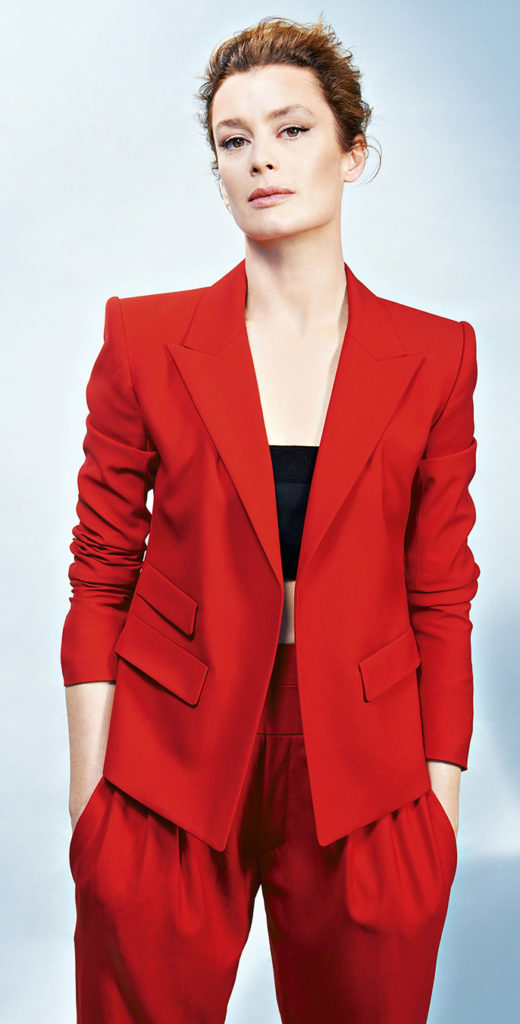Paris: Fall 2018
- Home
- City Reports 2015 - 2019
- Paris: Fall 2018

By François Fargue
Benjamin Millepied may have prematurely thrown in the towel as the director of the Paris Opera Ballet, but for many Parisians he still retains the image of a good guy with the right intentions. Despite having gone back to the United States and his L.A. Dance Project, he can present a triple bill at the prestigious Théâtre des Champs-Elysées, sell out the house on his name alone, and be acclaimed at curtain call. None of the pieces on offer — including one by him — were, however, terribly exciting.
The first piece, Second Quartet, by young French choreographer Noé Soulier and commissioned for the Los Angeles company, was uneventfully experimental for such a soirée. It required the dancers to do little else other than dodging or playing with invisible objects. A pity, as the true asset of the evening was the overall quality of the dancers, including the excellent Axel Ibot, who left Paris Opera to join Millepied’s company.
The fabulous dancers were given free rein in Millepied’s Bach Studies (Part 1), whose well-crafted, stylish and sometimes spectacular choreography strangely veers to semi-naked drama à la Béjart to the Overture from St. Matthew Passion. Millepied’s neoclassicism has brains and brawn, yet still lacks a true identity. He lost himself halfway with this mélange of the pagan and the religious.
Ohad Naharin’s 1996 Yag also erred on the side of convoluted intentions. Much talk about death and identity is uttered by the dancers amidst piecemeal dancing to a musical medley.
At the Paris Opera, Millepied’s successor Aurélie Dupont is these days the subject of myriad recriminations from the dancers. Indeed, a satisfaction survey initiated by the CEA (Commission for artistic expression) and containing 130 questions — which 108 out of 154 dancers answered anonymously — was leaked to Le Figaro, France’s main conservative daily newspaper.
The journalist relating the facts refers to the “affair” as an “atomic crisis” before revealing the dancers’ main grievances about Dupont’s management; she is generally maligned as an abrupt, insensitive, unsympathetic director. Her detractors say she is often missing, quipping that she is either shopping on Avenue Montaigne or taking Gaga classes in Tel Aviv.
In truth, she does continue to dance here and there. Indeed, she went straight from being an étoile to becoming the director of people who were only recently her peers, which cannot be a very comfortable position to hold. Though Dupont enjoys a great reputation both with the dancers as well as the public as one of the last international stars at the Paris Opera, she may lack experience in management. She was never a ballet master; in fact, she turned down an offer to replace Laurent Hilaire following her retirement. The question then is why she accepted to take on the more burdensome if prestigious dance director job.
What she is thinking right now is anyone’s guess as she has not made any public comments. Only Stéphane Lissner, director of the Paris Opera, spoke briefly to reaffirm his unconditional support for the woman he chose as Millepied’s successor.
No other comments were forthcoming, especially concerning the allegations of moral harassment apparently undergone or witnessed by 77 percent of the dancers who answered the survey. Another 26 percent declared themselves victims or witnesses of sexual harassment.
Once upon a time, Rudolf Nureyev would famously throw his cup of tea at dancers and no one dared protest. What’s more, dancers of that generation often speak fondly of those days and the Tatar tyrant. When I interviewed Brigitte Lefèvre at the beginning of her tenure as director in 1995, I remember she said the dancers tended to complain a lot and that she wished they were just happier.
Étoile emeritus Ghislaine Thesmar, now 75, went one step further as she spoke out about the current situation on French radio where she had been invited to talk about her new biography. The Paris Opera is no longer a theatre, she said, it’s a spa. “It was much more Spartan in my time and a rap on the fingers made you learn quicker.” Well, it takes all kinds.
Thesmar’s autobiography is titled Une vie en pointes. A life in pointe shoes is something that some ballerinas at the Paris Opera can apparently only dream of these days. Despite Dupont’s announcement to accentuate ballet, the season has been dedicated to contemporary creations or reprises mostly, and some ballerinas complain that they only get to put on pointe shoes for the yearly promotion exam, le concours.

Photo: Sophie Delaporte
